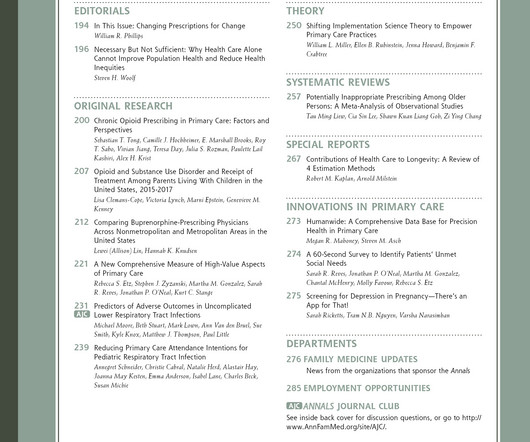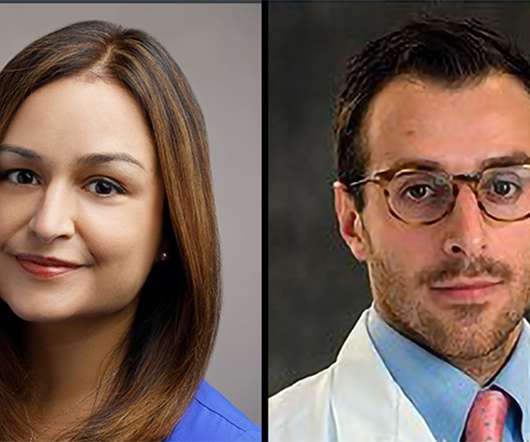Exposure to high-priority drug-drug interactions among non-elderly adults in Quebec: a cohort study [Prescribing and pharmacotherapeutics]
Annals of Family Medicine
NOVEMBER 20, 2024
DDI exposures were considered incident if the individual was not exposed to a DDI in the year preceding cohort entry. 2) Hazard ratio for an adverse event (emergency room visit, hospitalization, or death). Outcome measures: 1) yearly prevalence and incidence of exposure to at least one high-priority DDI.











Let's personalize your content